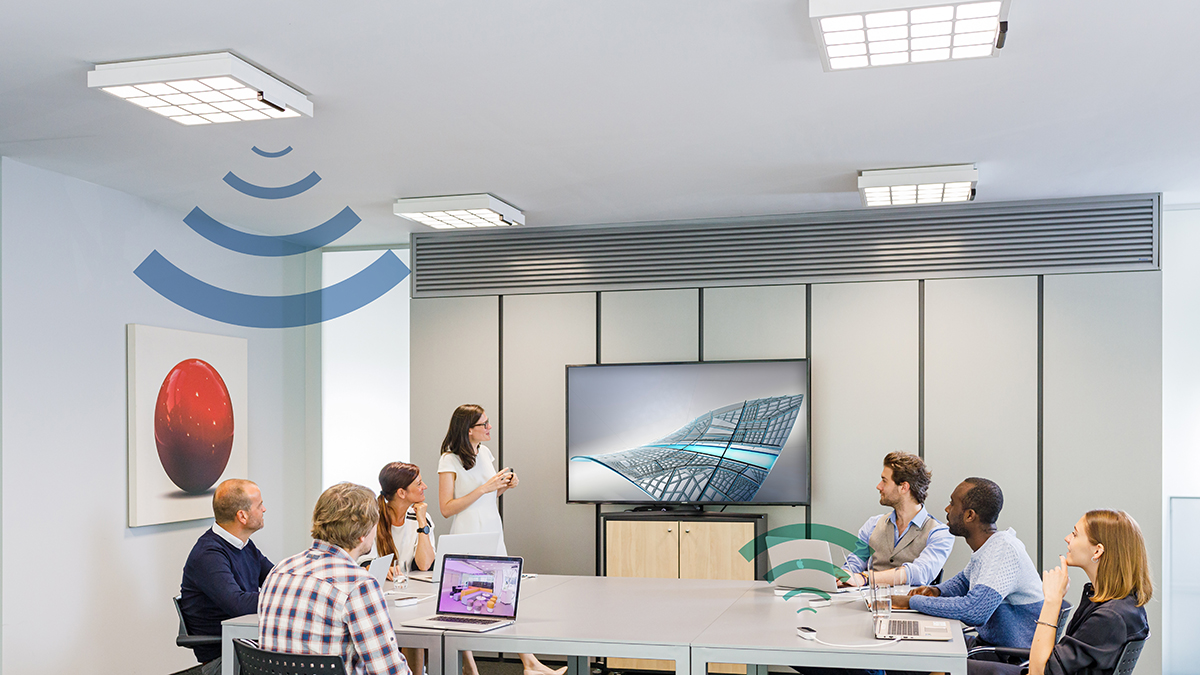Smart lights of the future are coming to help boost your Wi-Fi
Let there be light... and high-speed internet

One day in the not-too-distant future you could be connecting to the web via your lighting fixtures rather than your router – potentially extending your broadband internet into rooms and on to floors where it was previously unable to reach.
Signify (the maker of the Philips Hue smart lights) has announced Trulifi, a new high-speed version of its LiFi (Light Fidelity) technology that transmits data over light. We've previously seem these systems tested, but now it's becoming a reality.
Or at least, a reality for business and industry: Trulifi is being aimed at offices, hospitals, and other large buildings to begin with, though it could eventually make its way into our basements and attics as well.
- Our latest look at the Pixel 4
- Mesh Wi-Fi routers could be the future
- Your complete guide to electric scooters
The light fantastic
Here's how it works: a wired connection runs through to each room and hooks up the lights inside it. Those lights then beam out data signals to laptops that have a recognized USB access key installed, verifying the connection.
Lights can pass off connections to each other as you move around the room, making it ideal for open plan offices. Signify is also talking up Trulifi's ability to work in places where the radio spectrum (Wi-Fi and 4G) might be crowded or restricted.
LiFi only works as far as light can travel though – it doesn't reach through walls. While that's obviously a problem for a partitioned space, it does mean extra peace of mind for companies worried about data hacks from outside their building.
As we've said, Trulifi isn't ready for home use just yet, but with the first commercial partners signing up for the technology, it's a wireless streaming option to keep an eye on – alongside the growth of 5G.
Sign up for breaking news, reviews, opinion, top tech deals, and more.

Dave is a freelance tech journalist who has been writing about gadgets, apps and the web for more than two decades. Based out of Stockport, England, on TechRadar you'll find him covering news, features and reviews, particularly for phones, tablets and wearables. Working to ensure our breaking news coverage is the best in the business over weekends, David also has bylines at Gizmodo, T3, PopSci and a few other places besides, as well as being many years editing the likes of PC Explorer and The Hardware Handbook.